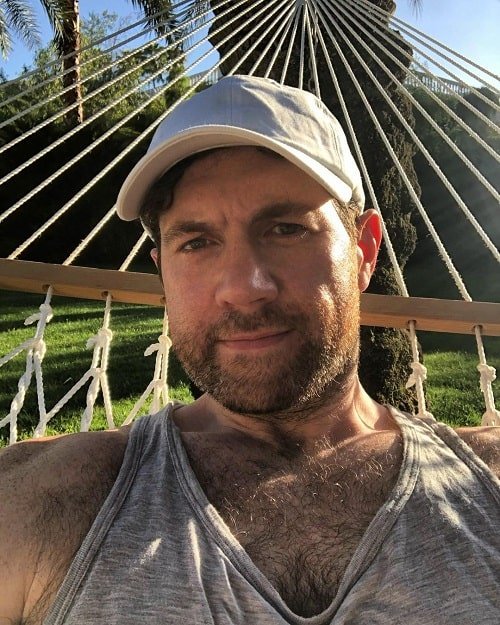Harvey Weinstein Biography and Life Story
In this article, here is the full details of Harvey Weinstein about wiki, biography, date of birth, birthplace, zodiac sign, nationality, hometown, age, height, weight, father, mother, family, girlfriend, wife, relationship status, children, profession, education, career, net worth, facts, Wikipedia, and many more.

Early Life and Background
Harvey Weinstein was born on March 19, 1952, in Flushing, Queens, New York, to a Jewish family. He and his younger brother, Bob, grew up in a middle-class household where their father, Max Weinstein, worked as a diamond cutter, and their mother, Miriam, was a homemaker. Harvey attended John Bowne High School and later enrolled at the State University of New York at Buffalo, where he developed an interest in the entertainment industry.
While still in college, Harvey and Bob began organizing rock concerts in Buffalo, booking acts like Frank Sinatra and the Rolling Stones. This early venture into the entertainment world set the stage for their later success in the film industry.
The Birth of Miramax
In 1979, Harvey and Bob Weinstein co-founded Miramax Films, named after their parents, Miriam and Max. The company initially focused on distributing independent and foreign films, quickly gaining a reputation for bringing niche movies to wider audiences. One of their early successes was the 1982 release of The Secret Policeman’s Other Ball, a concert film featuring British comedians and musicians. The film’s success helped Miramax establish itself as a significant player in the independent film market.
Miramax’s big breakthrough came in 1989 with the release of Sex, Lies, and Videotape, directed by Steven Soderbergh. The film won the Palme d’Or at the Cannes Film Festival and was a commercial success, earning over $24 million at the box office. This success marked the beginning of a golden era for Miramax, which became synonymous with critically acclaimed and commercially successful independent films.
Success and Influence in Hollywood
Throughout the 1990s and early 2000s, Miramax, under Harvey Weinstein’s leadership, became a powerhouse in the film industry. The company was known for producing and distributing a string of successful and award-winning films, including Pulp Fiction (1994), The English Patient (1996), Good Will Hunting (1997), and Shakespeare in Love (1998). Weinstein’s ability to identify talent and his aggressive marketing strategies helped propel these films to both critical acclaim and box office success.
Weinstein was also known for his influence in the Academy Awards. He was a master of the Oscar campaign, using his marketing prowess to secure numerous nominations and wins for Miramax films. Shakespeare in Love, for instance, won seven Oscars, including Best Picture, in 1999, beating out the favorite, Saving Private Ryan. This victory was largely attributed to Weinstein’s relentless campaigning efforts.
In 2005, after leaving Miramax due to conflicts with Disney, which had acquired the company in 1993, Harvey and Bob Weinstein founded The Weinstein Company (TWC). The new company continued the brothers’ success in the film industry, producing and distributing acclaimed films such as The King’s Speech (2010), Django Unchained (2012), and The Imitation Game (2014). TWC quickly established itself as a major player in Hollywood, with Harvey Weinstein continuing to wield considerable influence.
The Downfall: Sexual Misconduct Allegations
Harvey Weinstein’s career and reputation came crashing down in October 2017, when The New York Times and The New Yorker published investigative reports detailing decades of sexual harassment, assault, and misconduct by Weinstein. The reports included accounts from dozens of women, including well-known actresses such as Ashley Judd, Gwyneth Paltrow, and Angelina Jolie. These revelations exposed a pattern of predatory behavior, with allegations that Weinstein had used his power and influence to manipulate and exploit women in the film industry.
The allegations against Weinstein sparked the #MeToo movement, as more women came forward to share their experiences of sexual harassment and assault, not just in Hollywood, but across various industries. The movement led to a broader reckoning with sexual misconduct and power imbalances in the workplace.
In response to the allegations, Weinstein was fired from The Weinstein Company, expelled from the Academy of Motion Picture Arts and Sciences, and became a pariah in the entertainment industry. His fall from grace was swift and dramatic, as he went from being one of the most powerful figures in Hollywood to one of its most reviled.
Legal Consequences and Conviction
In May 2018, Weinstein was arrested in New York on charges of rape, criminal sex act, sexual abuse, and sexual misconduct related to incidents involving two women. His arrest marked a significant moment in the #MeToo movement, as it showed that even the most powerful figures could be held accountable for their actions.
In February 2020, after a highly publicized trial, Harvey Weinstein was found guilty of third-degree rape and a first-degree criminal sexual act. He was acquitted of the most serious charges, which included predatory sexual assault. In March 2020, Weinstein was sentenced to 23 years in prison, a sentence that many saw as a victory for his victims and a warning to others who might abuse their power.
Weinstein also faced additional charges in Los Angeles, where he was extradited in 2021 to stand trial for alleged sexual assaults that took place between 2004 and 2013. His legal battles continue, with multiple lawsuits and further criminal investigations still pending.
Legacy and Impact
Harvey Weinstein’s legacy is a complex one. On one hand, he was a transformative figure in the film industry, helping to bring independent cinema to mainstream audiences and shaping the careers of numerous filmmakers and actors. His work at Miramax and The Weinstein Company left an indelible mark on Hollywood, with many of the films he produced becoming classics of modern cinema.
On the other hand, Weinstein’s legacy is forever tarnished by the revelations of his abusive behavior. His actions not only harmed countless women but also exposed a culture of silence and complicity in Hollywood. The #MeToo movement that followed the exposure of his crimes has led to significant changes in how sexual misconduct is addressed in the workplace, and his downfall serves as a reminder of the importance of accountability and respect in all industries.
Conclusion
Harvey Weinstein’s life story is one of dramatic rise and fall. He was a visionary in the film industry, with an unparalleled ability to spot talent and create cinematic masterpieces. However, his abuse of power and the suffering he inflicted on others overshadowed his professional achievements. Today, Weinstein’s name is synonymous with the darker side of Hollywood, serving as a cautionary tale of the consequences of unchecked power and the importance of standing up against injustice.
Stay connected with the wikimavani to know more about other trending personalities the wiki, biography, date of birth, birthplace, zodiac sign, nationality, hometown, age, height, weight, father, mother, family, boyfriend, husband, girlfriend, wife, relationship status, children, profession, education, career, net worth, facts, Wikipedia, and many more.





